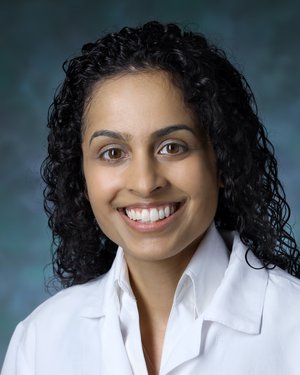Tina Kumra, MD

- Longitudinal Ambulatory Clerkship Director
- Associate Professor of Clinical Pediatrics
The Longitudinal Ambulatory Clerkship (LAC) places students in “home clinic” for a 12-month period beginning in January of Year One and extending through December of Year Two. For one four-hour session each week, students travel to their assigned clinic and practice their clinical skills in supervised settings under the direct guidance of supervising physicians. The LAC also allows students to experience firsthand many of the professional, behavioral and organizational issues that have an impact on the practice of medicine. This clerkship provides students with a case-based context for issues covered in the Horizontal Strands of the Genes to Society curriculum. Finally, students have the opportunity to develop a close relationship with a practicing physician and an ongoing, longitudinal relationship with a group of patients they see periodically during the clerkship.
During the clerkship, students will:

Iris Knox
Training Coordinator
Email: iknox1@jhmi.edu
The course meets three hours (one afternoon) per week from January of Year One through December of Year Two. Small-group sessions and simulated patient sessions occur on campus once a month in lieu of clinic sessions that week.
| Week 1 | 2 | 3 | 4 | 5 | 6 | 7 | 8 | 9 | 10 | 11 | 12 | 13 | 14 | 15 | 16 | 17 |
|---|---|---|---|---|---|---|---|---|---|---|---|---|---|---|---|---|
| Genes to Society Pulmonary Renal | TIME: Substance Use Disorders | Genes to Society Cardiovascular GI / Liver Endocrine | ||||||||||||||
| Longitudinal Ambulatory Clerkship | Longitudinal Ambulatory Clerkship | |||||||||||||||
| Scholarly Concentrations | Scholarly Concentrations | |||||||||||||||
| 18 | 19 | 20 | 21 | 22 | 23 | 24 | 25 | 26 | 27 | 28 | 29 |
|---|---|---|---|---|---|---|---|---|---|---|---|
| TIME: Patient Safety and Quality Improvement | Genes to Society Reproductive Musculoskeletal | Transition to the Wards | |||||||||
| Scholarly Concentrations | |||||||||||